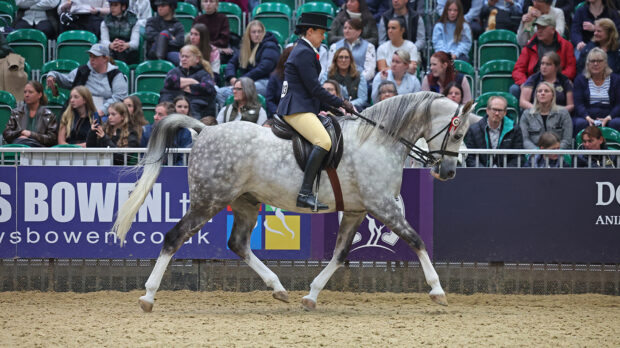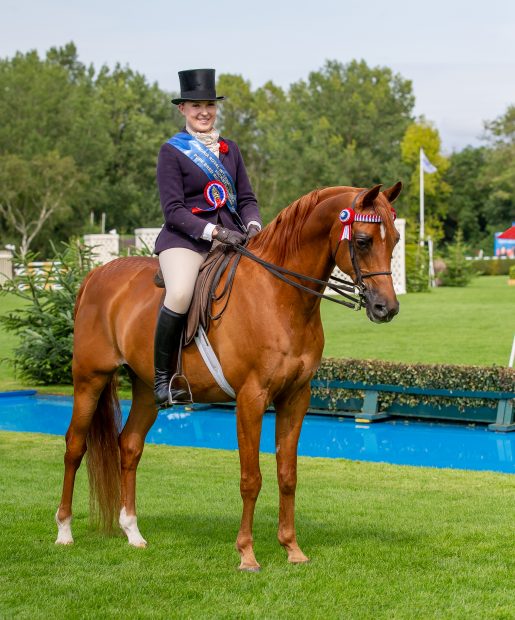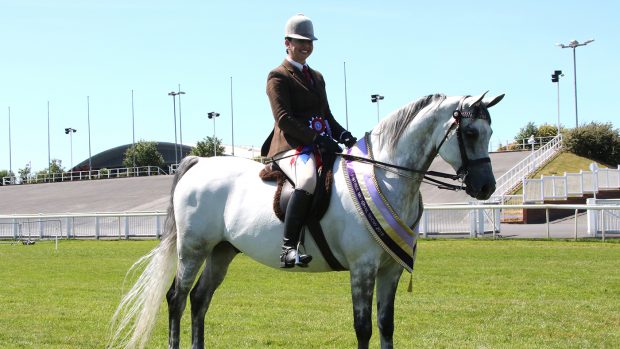A leading breeder of Arab horses has reignited the debate about “abusive” trends in showing.
Princess Alia Al Hussein, who is a governor of the Arab Horse Society , has attacked what she calls “abusive trends in the training of show horses.”
The Jordanian princess made the remarks in a speech at the World Arabian Horse Organisation in Qatar on 4 November.
“[Spectators] don’t come because it is not a pleasure to see a vast majority of frightened animals,” she said.
Nigel Fuller, who judges and shows ridden Arabs, agreed.
“In-hand handlers can be extreme in their methods,” he said. “I’d prefer to see Arabs being shown in a natural way.
“I’ve seen handlers shaking bottles with stones and waving whips with plastic bags on the end.”
Christina Battle, who shows an Arab, believes her results suffer due to natural methods.
“At a show in-hand, I was placed last because I didn’t show her like the other professionals,” she said.
“The Arab that won was trotted up with people whistling to hype it up. It was then shanked [jerking on the chin chain to make it raise its head] and turned in a circle,” she added.
Besides shanking and whipping, campaigners say that behind the scenes, certain handlers cut underneath the dock and apply astringent to make horses hold their tails higher, or train them with bells on their legs to encourage extravagant paces.
But breeder Natalie Hewitt of Chapel Lane Arabians said the more extreme methods are rarely seen here.
“Many UK trainers use kinder methods than those in Europe and the USA and still achieve great things and should be commended,” she said.
Princess Alia’s speech added weight to a long-running campaign against abuse. The Facebook page “Stop the Abuse of Arabians In Hand” has nearly 1,000 “likes”.
Annette Dixon of the Arab Horse Society said European shows are run under “a watchful eye to prevent unfavourable trends creeping in”.
“Some horses do need encouragement to give their best and we have some very talented producers in the UK who show Arab horses to their best advantage,” she added.
This news story was first published in the current issue of H&H (24 November 2011)




